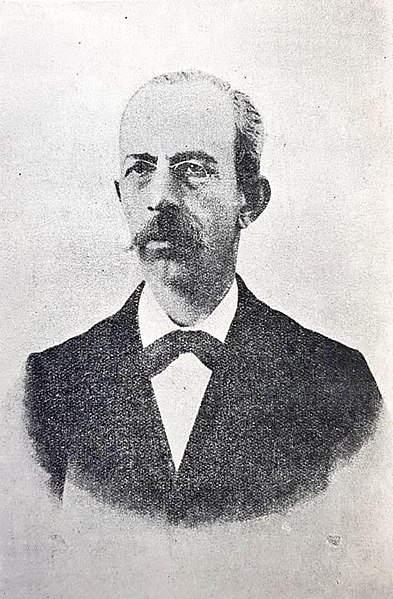Zaki al-Arsuzi was a Syrian philosopher, philologist, sociologist, historian, and Arab nationalist. His ideas played a significant role in the development of Ba'athism and its political movement. He published several books during his lifetime, most notably The Genius of Arabic in its Tongue (1943).
al-Arsuzi before 1939
al-Arsuzi as seen in the early 1960s
Arab nationalism is a political ideology asserting that Arabs constitute a single nation. As a traditional nationalist ideology, it promotes Arab culture and civilization, celebrates Arab history, glorifies the Arabic language as well as Arabic literature, and calls for the rejuvenation of Arab society through total unification. It bases itself on the premise that the people of the Arab world — from the Atlantic Ocean to the Arabian Sea — constitute one nation bound together by a common identity: ethnicity, language, culture, history, geography, and politics.
The Aqaba Flagpole in Aqaba, Jordan bearing the flag of the Arab Revolt. The Aqaba Flagpole is the sixth tallest free standing flagpole in the world.
Ibrahim al-Yaziji (1847–1906)
Members of the Arab Higher Committee, 1936; clockwise, Jamal al-Husayni, Hussein Khalidi, Yaqub al-Ghusayn, Fuad Saba, Alfred Roke, Abdul Latif Es-Salah, Ahmed Hilmi, Amin al-Husayni, and Raghib al-Nashashibi.
Egyptian president Gamal Abdel Nasser returns to cheering crowds in Cairo after announcing the nationalization of the Suez Canal Company, August 1956.






